Data has become a crucial metric that defines an organization’s performance. It helps businesses understand their customers, better advertising strategies, and provide an overall improved customer experience. The field of data analytics has a broad scope that includes many different goals and techniques.
Data analytics refers to analyzing raw data to find trends and make conclusions about those trends in the simplest terms. Such conclusions are useful for optimizing processes to enhance the efficiency of the business or organization.
Consequently, almost every organization out there recruits data analysts to keep up with the huge amount of data generated every second and wring actionable insights out of them. No doubt, the data analyst career path is something worth talking about.
So, if you have been asking yourself, “Is data analytics a good career?” here is a comprehensive guide on the career path, what data analysts do, and the career progression.
What is Big Data analytics?
Big data analytics uses highly developed analytic procedures on incredibly large and diversified data sets that consist of structured, semi-structured, and unstructured data. This data arrives from distinct sources like social media, search engines, and mobile devices in high volume and velocity.
Businesses use big data analytics to structure the scattered data to generate meaningful patterns. It powers up the business by improving decision-making, making future predictions, and enhancing business intelligence. Big data analytics includes processes, tools, and algorithms to analyze and manage the data.
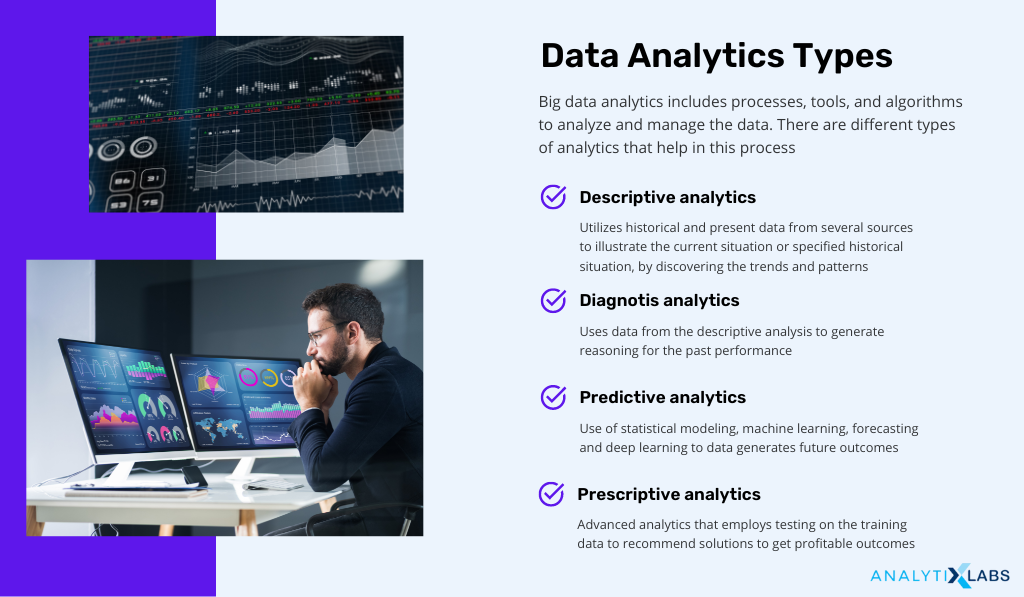
Data Analyst Roles and Responsibilities
- Data processing: Importing, cleaning, transforming, and validating data into required conditions to apply analytical tools. Additionally, monitoring the data quality.
- Data visualization and representation: Presenting data into charts, tables, and graphs and developing relational databases for better classification. Preparing crisp data reports for the business to understand the insights.
- Automation procedures: Design automation processes to increase the efficiency of data organization and analysis.
- Applying analytical procedures: A data analyst deploys mining, statistical, and analytical procedures over large datasets to draw meaningful patterns and inferences.
- Drafting reports: A Data analyst prepares the reports of the observations for the external and internal audiences. The reports must be clear and should provide a detailed description of the business insights and future predictions.
Future and Scope in Data Analytics
Big data is emerging as more than technology and expanding across fields like strategic management, retail, pharmaceutical, government civil services, research and development, marketing, sales, and promotion. Big data analytics has become a revenue-generating concept for businesses. The industry giants acquire highly skilled professionals to handle large datasets to develop business insights.
The big data analytics market attained a CAGR of 11.2% and a value of USD 271.83 billion in 2022. According to the reports of Statista, the worldwide big data analytics market will grow by 30 percent generating revenue of over 68 billion USD by the financial year 2025 [Source]. It is expected to grow at a CAGR of 13.4% by 2029, reaching USD 655.53 billion [Source].
Post-COVID-19, businesses have adopted data-driven approaches. The organizations have implemented big analytics software and cloud-based analytics to tackle critical data, improve data security and optimize overall productivity.
Resulting in the rise of job opportunities for skilled professionals; they can impact self-development and market growth by evolving themselves to transform analytically. The projected number of new jobs in the data analytics industry is around 11 million by 2026. Also, investments in Machine Learning and AI increased by 33.49% in 2022 [Source].
Why choose Data Analytics as a career path
Is data analytics a good job? This section puts forward the answer to the question. Analytics is a hot new trend that drives businesses towards higher productivity. Businesses search for a skilled workforce to ensure better outcomes that can dig out insights from large datasets using the specialized tools and techniques of data mining. Some major reasons to choose data analytics as a career option are listed below:
- Data analytics is the top priority for all organizations: Small and large-scale businesses transform themselves into the virtual platform. So Big data adoption is the topmost priority of the enterprise generating opportunities in telecommunication, banking and insurance, healthcare, and various sectors. The transformation has experienced improved marketing, B2B market interactions, and synchronized operations and manufacturing. The continuously evolving data and its productive outcomes make the future of big data analytics much brighter.
- The dearth of people with the required skill set: Though the market surges with the job profiles for data analytics, a significant gap exists between the number of skilled professionals and existing data analysts. The major challenge that business analytics faces are the lack of professionals having analytical and statistical knowledge, which could be implemented on the data lakes to structure and utilize it.
- Numerous job opportunities in different sectors: The big data analytics framework encapsulates larger domains and provides technical and non-technical Business analyst profiles to develop organizational growth. The major job roles that are offered after mastering big data analytics are mentioned in the later section of the article.
12 reasons to consider a career in big data analytics
1. There is a worldwide boom in data generation
The most obvious reason for considering a career in analytics is the colossal amount of data being generated every minute. This huge supply of data is crucial for companies to discover new market opportunities and boost efficiencies.
As per Statista, the 2020 projection for worldwide data creation was 59 zettabytes, promising to increase further in the future. Among the major contributors to data traffic is the Internet of Things (IoT), and the figures are proof enough of that.
In 2019, global IoT connections created a data volume that reached 13.6 zettabytes, and the number is forecasted to go up to 79 zettabytes by 2025 (Source).
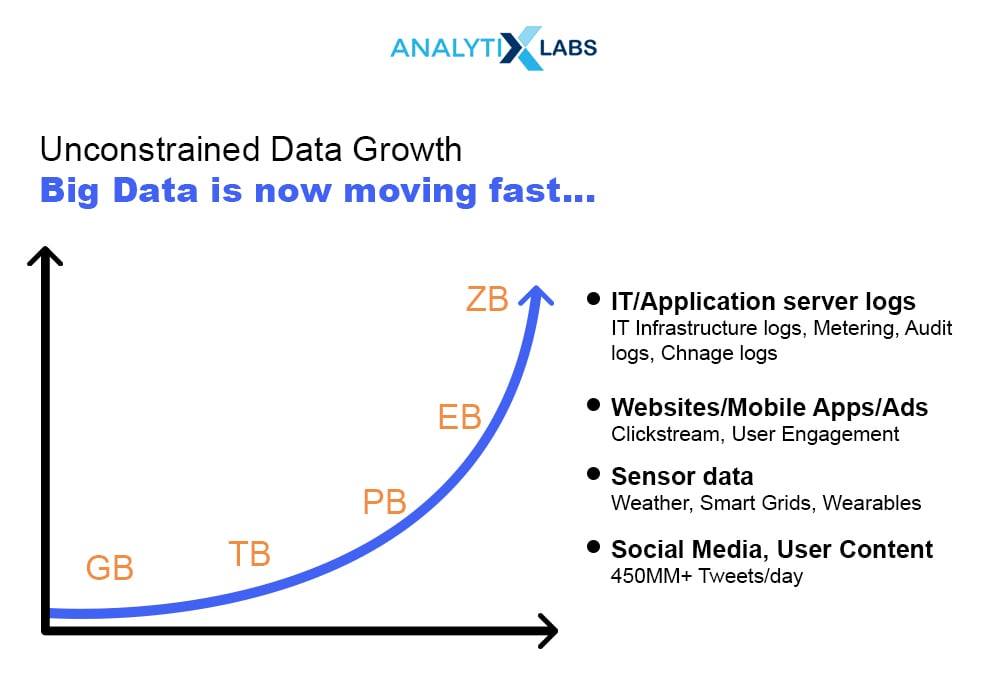
2. The world is moving towards innovation and digital transformation
Another thing to consider while discussing the potential of a data analytics career path is that we are moving towards a future driven by digital transformation and innovation. In fact, those are two key factors that influence investment in artificial intelligence and big data technologies.
According to a survey, global organizations have had a 52.5% adoption rate of big data technologies as of 2019, with a further 38% holding the promise of using such technologies in the future (Source). Among all the organizational data use cases, data warehouse optimization and forecasting have been found to be the most crucial, along with customer analysis and predictive maintenance.
Related: What is Big Data Engineering or Modern Data Engineering?
3. Getting started with the Data Analyst career path is easy
If you have a natural acumen for asking questions and finding solutions, a career in analytics is just for you. Regardless of your academic and professional background, you can easily kick-start your data analyst career if you have the relevant skills.
Several online materials and courses are available. Signing up for these will broaden your big data skills by imparting knowledge of basic programming and tools like R, Apache Spark, and Hadoop.
4. Large-scale adoption of big data by enterprises
It is becoming impossible for companies to ignore the massive business impact of big data analytics. With millions of users generating new data sets every second, there is an ever-growing need to make sense of the truckloads of information.
Hence, companies are desperate to hire experts with data analysis skills. With a subsequent rise in cloud storage and machine-generated data, Statista estimates that the Hadoop and big data market will grow to $24.43 Billion in 2027 from $99.3 billion in 2022 (Source).
5. Analytics professionals are in high demand
According to a survey carried out by Analytics Insight, the world will see around 137,630 new jobs data science job openings by 2025 (Source). Further, while the COVID-19 pandemic and the parallel economic downturn adversely affected most other tech job profiles, the data science industry made it out of the mess with way fewer salary cuts and lay-offs.
The capturing and interpretation of data have radical effects on any organization. Thus, there is a huge demand for data analysts who can help transform business trajectories. The scope of professional opportunities is guaranteed to rise further in the future; at a time when almost every organization out there is looking to tap the power of big data analytics, a data analyst career path indeed looks promising!
6. Big data analytics is used across various sectors
Big data analytics finds applications across a wide range of industries and sectors. If you want to kick-start your data analyst career path, there can be no better time than now. Big data analytics is everywhere, from customer service chatbots and Netflix movie recommendations to automated fashion tips on e-commerce apps!
Several industries hire big data experts if you are passionate about exploring your big data skills and building your data analyst career. These include the banking, financial services, and insurance sector, media and entertainment, healthcare, retail, telecommunications, and the automotive industry.
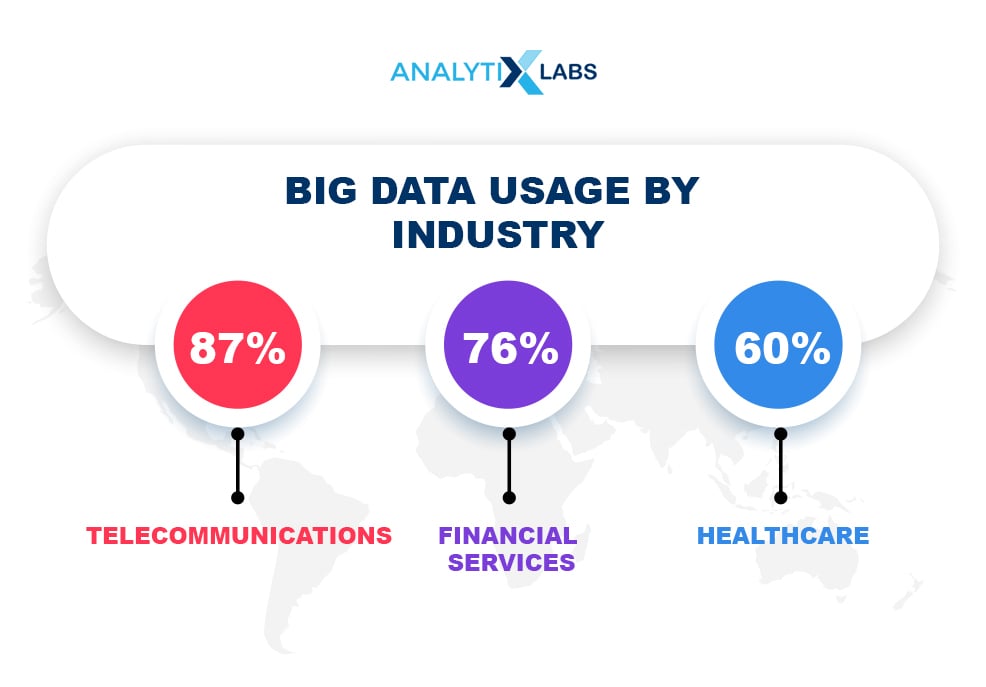
7. Ample opportunities to work with elite brands
One of the best aspects of the data analyst career path is that you get opportunities to work with some of the industry’s big shots. Regarding major big data analytics software providers, some of the top names are global brands such as Microsoft, Oracle, IBM, and SAP.
Here is a sector-wise breakdown showing some of the premier companies and organizations that are hiring professionals with relevant data science skills:
- Banking, Financial Services, and Insurance: HDFC, HSBC, JPMorgan Chase, ICICI Bank, BNP Paribas, Citi Group
- Healthcare: Sanofi, GE Healthcare, GSK
- Media and Entertainment: Netflix, Fox, Time Warner, Buzzfeed, Viacom, Dish Network, NDTV
- Retail: Amazon, Walmart, Flipkart, Reliance Retail Ltd., Future Enterprises Ltd., Landmark Group, ITC
- Telecommunications: Reliance Jio, Bharti Airtel Limited, Vodafone-IDEA, BSNL
- Automotive Industry: Volkswagen, Honda, Hyundai, Maruti Suzuki, General Motors
8. A range of job profiles to choose from
Regarding job titles and domains, the data analytics career path offers plenty of options. In line with the big data needs in different organizations, you can choose either of the following types of data analytics:
- Predictive Analytics
- Prescriptive Analytics
- Descriptive Analytics
When it comes to different job titles in data analytics and its related domains, you have a wide range of options to choose from. Some of them are:
- Big Data Analyst
- Big Data Analytics Architect
- Big Data Analytics Business Consultant
- Big Data Engineer
- Big Data Solution Architect
- Analytics Associate
- Metrics and Analytics Specialist
- Business Intelligence and Analytics Consultant
9. Low supply of the right talent and skillset
Most big data jobs demand candidates with advanced degrees and relevant experience. Around 81% of all data science and analytics jobs require candidates to have at least three years of work experience. Some of the highest-paying jobs require a relevant master’s or higher educational degree (Source).
However, such candidates are not easy to find in the fast-growing field of data analytics. Therefore, despite exponential growth in demand for analytics professionals, there is a huge shortage of skills regarding the talent supply side.
Despite big data analytics being a “hot” career option globally, a lot of job positions remain vacant due to a deficit of required skills. So, if you have the relevant skills and qualifications, this is the best time to think about your data analyst career progression.
10. Alluring salary packages
A lucrative aspect of a data analytics career is its salary growth. Salary packages for big data jobs are increasing at par with the demand for data analyst professionals. As per a study by the IT jobs site Robert Half Technology, most big data jobs offer salaries and additional compensations well into the six-figure range that are way above the market pay.
Further, since data analytics professionals with the requisite skills are hard to find, you can expect a pretty good paycheck if you have the right knowledge and expertise.
With the supply of talent running low, as we previously said, salary packages will remain alluring for deserving candidates. Shifting to a data analytics career has monetary benefits that are way greater than that of other IT jobs.
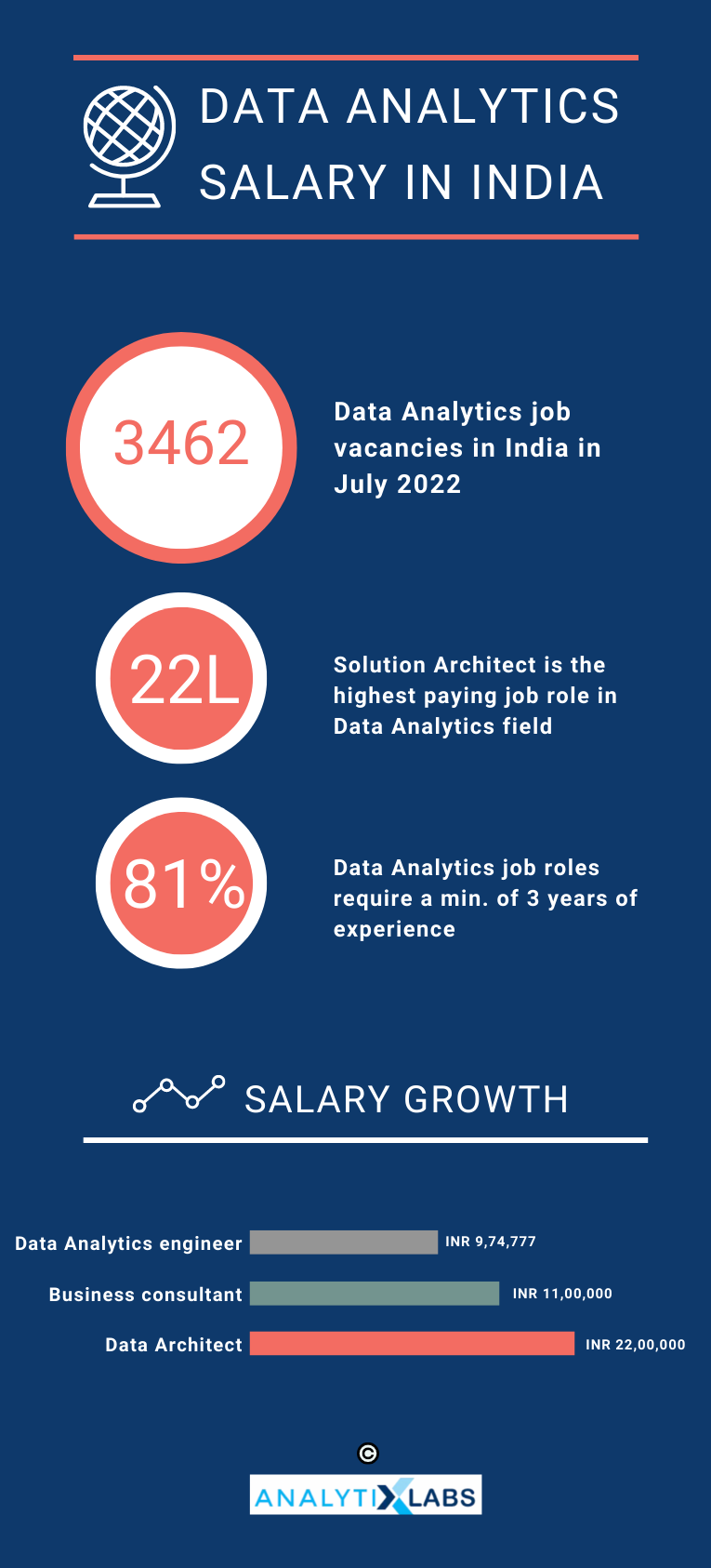
Enterprises are investing huge amounts to implement analytical tools and statistical procedures for business development. The higher demand for skilled professionals makes the job profile a highly paid one. The National average salary of a big data analyst in the US is as high as USD 65,641 as of May 2023 [Source].
11. Data analysts are one of the key decision-makers
Data analytics is one of the chief competitive resources in any organization. It adds value to the organization, helping it to make informed business decisions and providing an edge over market competitors.
Hence, a career in analytics is bound to guarantee you the role of one of the key decision-makers in the organization. As more companies rely on big data analysts, a data analyst career path will give you ample opportunities to work with key persons in the organization. You will become a part of the streamlined decision-making process and collaborate with local levels to act on insights.
12. A chance to up-skill and grow
Data analysts get opportunities to use their skills across multiple work areas, including sales, finance, data assurance, business intelligence, and marketing. In the process, they can enhance their data analytics knowledge through the acquisition of skills in data infrastructure, data mining, decision analysis, and data visualization. Further, a career in analytics entails working with different languages and frameworks.
Besides programming abilities, the data analyst career path also requires quantitative and advanced statistical skills. Moreover, digitization trends offer abundant growth opportunities for data analysts, both beginners and professionals.
In fact, a career in analytics will not limit you to a specific field; if you have the appropriate set of technical skills, the data analytics career path will let you shift easily and grow with the industries that are best aligned with your interests.
How does the Career path look?
A skilled data analyst is an asset to the company. Businesses open up higher positions for trained big data analysts. To enter the field, one needs the art of playing with numbers. Statistical and analytical skills make a person go deep in the field. Having a bachelor’s degree in mathematics, statistics, or computer science can be helpful. Otherwise, enrolling in entry-level data analytics and business development courses can also help to learn the required skill set.
Upgrading the technical requirements like Python, SQL, Hadoop ecosystem, or R for predictive analytics can help in mastering analytics. A master’s degree is necessary for research-based positions and higher analytics job profiles. It adds up to a person’s expertise by thorough knowledge of the field. The highly skilled professionals generate higher revenues for the business thus, attract higher paychecks.
Job opportunities for Data Analyst
Data Analytics professional outlook is ascertained to provide success and opportunities in multiple industries. Aspirants are attracted to the field due to its flexible workflow, high-paid jobs, remote work culture, and self-employment. Some of the major job roles that data analytics provides are as follows.
Big Data Engineer: Big data engineers develop, test, and work on large data architectures, warehouses, and pipelines. The data engineers work thoroughly to get optimal solutions to store, organize and retrieve data from the data lakes. They apply decisive analytical skills to develop business intelligence.
Data Warehouse Manager: Data warehousing is the technique of storing data in the facilities, extracting and analyzing it according to the business needs. A warehouse manager designs and implements the data pipeline to store and retrieve data from the centralized database. They develop data mining and analytical models to service patterns for business intelligence.
Data Analyst Consultant: An analyst’s role covers a variety of data-related responsibilities. They identify and review business and industry data to extract valuable information. This information is used to enhance decisions making by making future predictions
Business Intelligence Analyst: BI analyst utilizes business data, statistical analysis, and data visualization methods to make predictive statistical models. They use it for insight development and to make sound decisions for business development.
Metrics and Analytics Associate: Metrics and Analytics associates collect, organize, and analyze data received from multiple information sources. The process presents the extracted information on key performance metrics. They are responsible for maintaining and operating the process and pipeline to gather major metrics and compile them into operational dashboards.
Skills Required for a Data Analytics Career
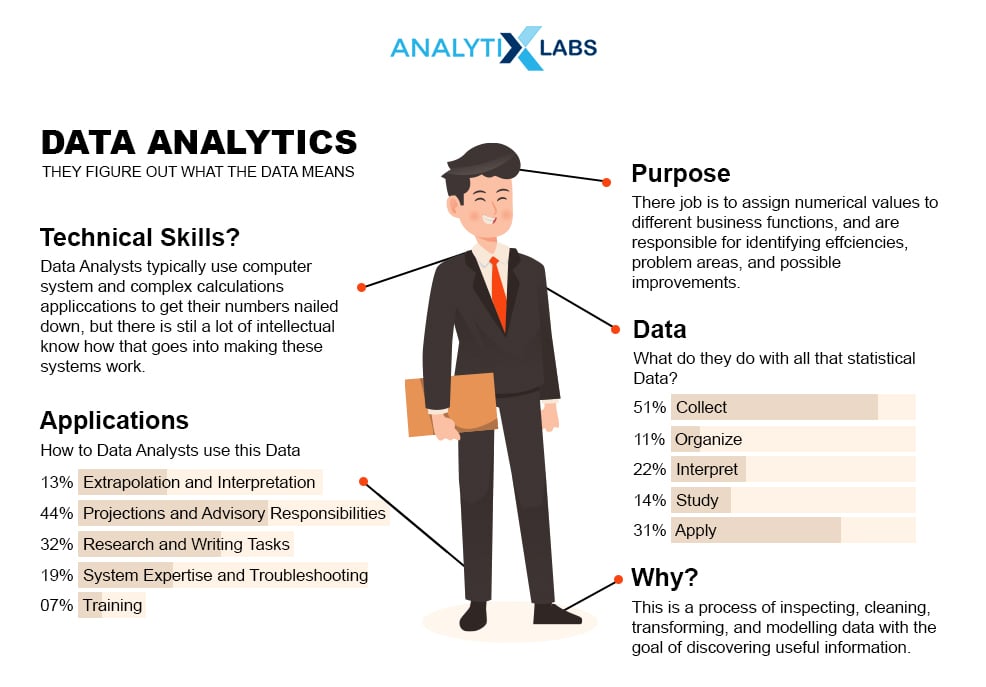
Another important aspect of the data analyst career path is, knowing the skills required to become one. The field is constantly evolving, and there seems to be no consensus among recruiters regarding a definite skill set. However, we have listed the top in-demand skills you cannot overlook at any cost. These include:
- Math skills: If you want to make a successful career in analytics, you cannot afford to forget some fundamental mathematical skills. Working in the big data analytics field requires a concrete foundation of the following mathematical concepts – probability, statistics, linear algebra, and multivariate calculus.
- Business sense: Without business acumen and sound communication skills, there is no way a data analyst will understand business problems and come up with solutions to minimize costs, maximize efficiency and tap new revenue opportunities.
- Programming skills: The golden standard for this field is Python, R, SQL, and SAS.
- Knowledge of analytical tools: Data processing and analysis cannot progress without analytical tools like Spark, SQL, and Hadoop.
- Machine learning: Not all job roles, but most data analyst jobs require you to learn machine learning skills sooner or later, especially when working with big data.
- Data visualization: Data analysis makes no sense if people can’t see the results. Hence, knowledge of data visualization tools such as Power BI, Ggplot, Matplotlib, Tableau, and D3.js is essential.
- Data wrangling skills: This skill will help you clean messy data and address issues of data imperfections.
You may also like to read:
1. 10 Data Analytics Tools for Everyone | Beginner to Advanced Level
Conclusion
Big data analytics is a rapidly growing field with compelling opportunities for professionals across a wide range of industries. With the present skyrocketing demand for skilled big data professionals, there can be no better time to enter the big data job market.
If you’re confident that the data analytics career is perfect for you, you need to get started and prepare yourself to land one of the many data analyst job titles that are much sought-after. Most importantly, it would help if you focused on the skills and experience needed to add an extra edge to your resume.
Frequently Asked Questions on Data Analytics Career
1. Is data analytics a high-paying job?
Data analytics is a highly rewarding job. It guarantees financial rewards at both entry-level and experience levels. According to Payscale, the average salary of a data analyst in India is INR 469,593 per year. While that of an experienced data analyst with 10+ years of work experience is INR 985,710. After getting a more advanced degree with the PG Data Science course, you can land up an even higher job.
2. What is a career in data analytics?
Yes, Data analytics serves numerous opportunities in every field. The rising demand for data-driven industries makes the profile inevitable and demanding. Thus a career in data analytics is bright in financial and knowledge terms.
3. How do I start a data analytics career?
Having a bachelor’s degree, attaining fundamental knowledge, and upgrading the skills using courses offered by AnalytixLabs are all you need to give a kick start to your data analyst career.
Hope this helps you make a successful start. Good luck!
You may also like to read:
- Top 40 Data Analyst Interview Questions & Answers
- Top 14 Data Analytics Online Courses One Must Explore!
- Big Data Job Opportunities and Trends | Career in Big
- Top Data Analytics companies to work for in India
- Complete Guide on How to create a data analyts resume
- How to Become A Data Scientist in 2023
- Data Scientist Resume For Freshers





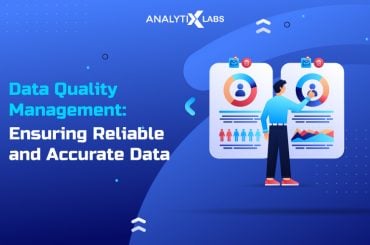



2 Comments
Thanks this article gives more information on data science fundamentals.
Thank you for sharing. Can you update the data to 2023, please? It would be really helpful.